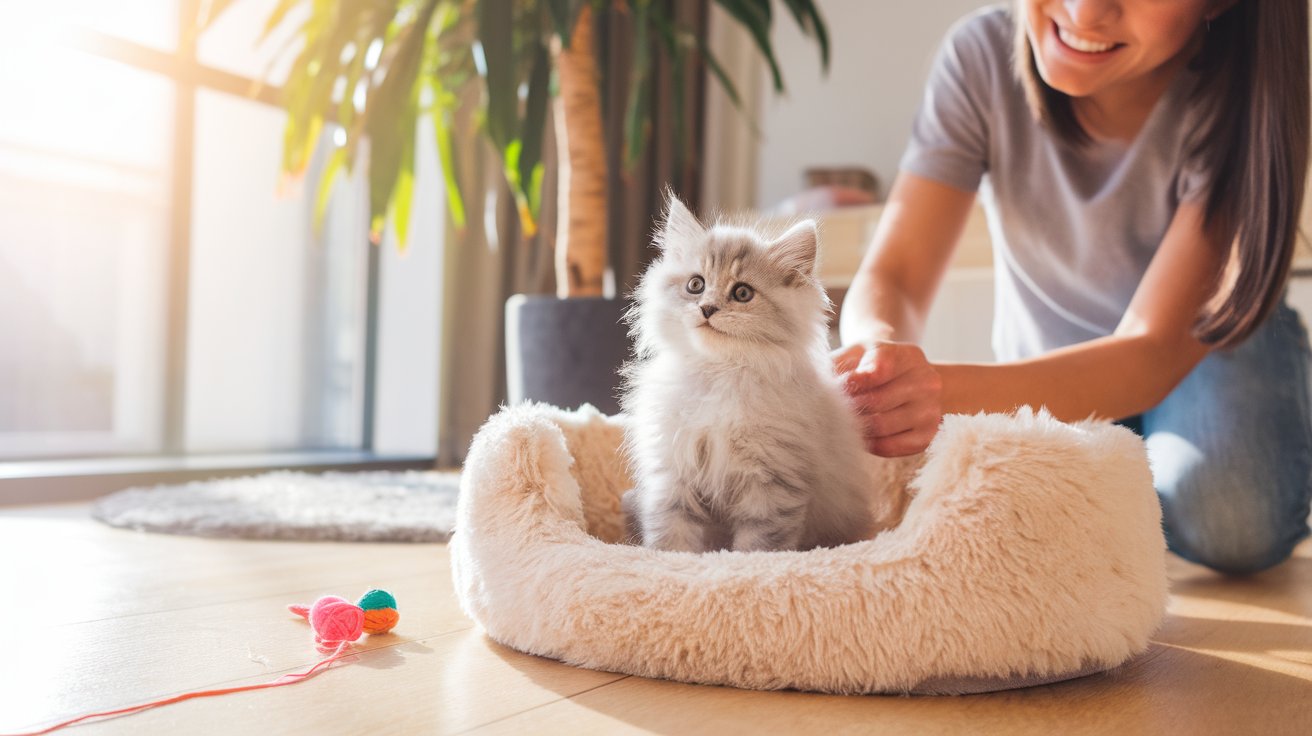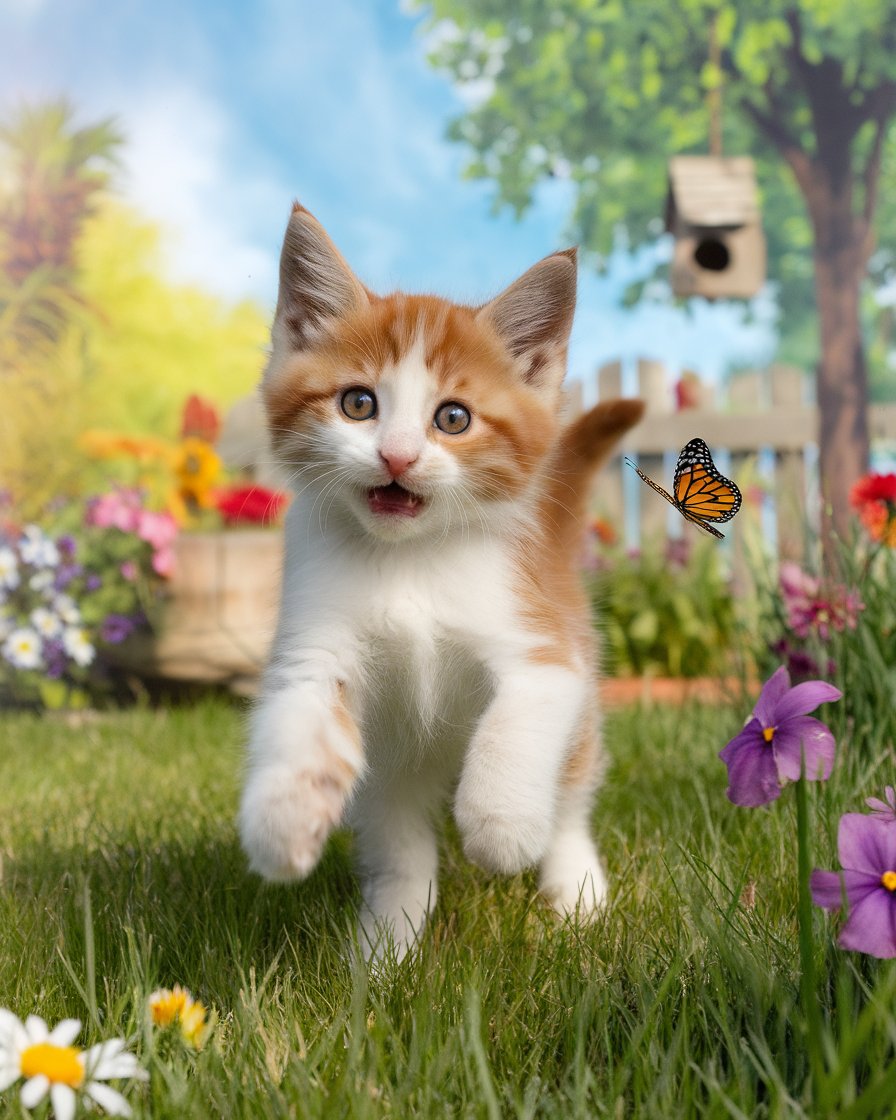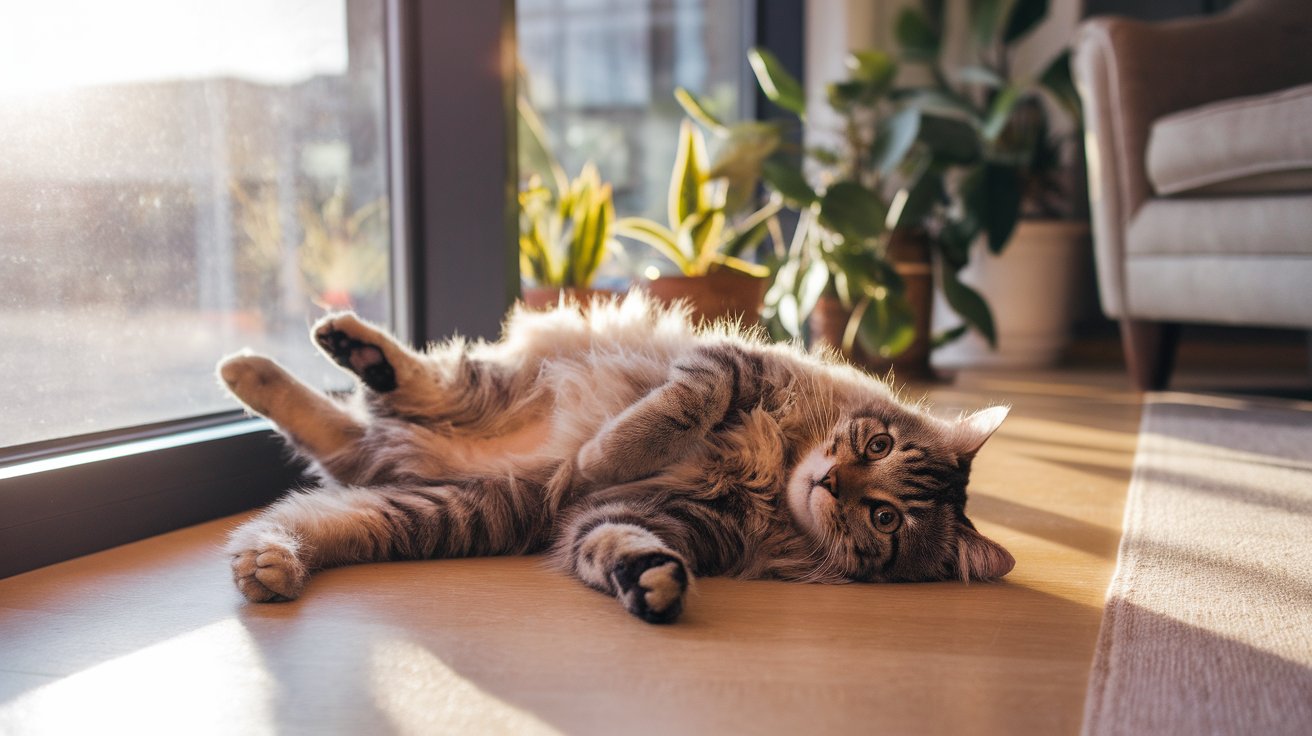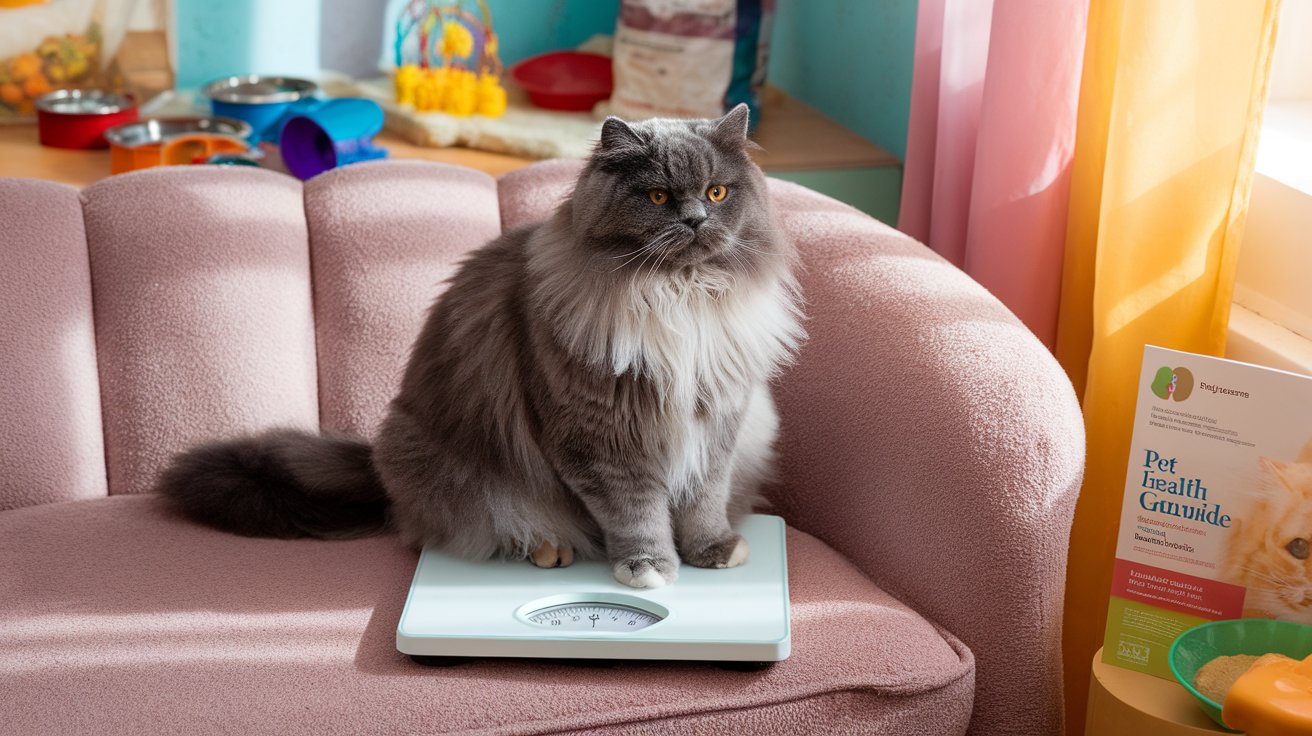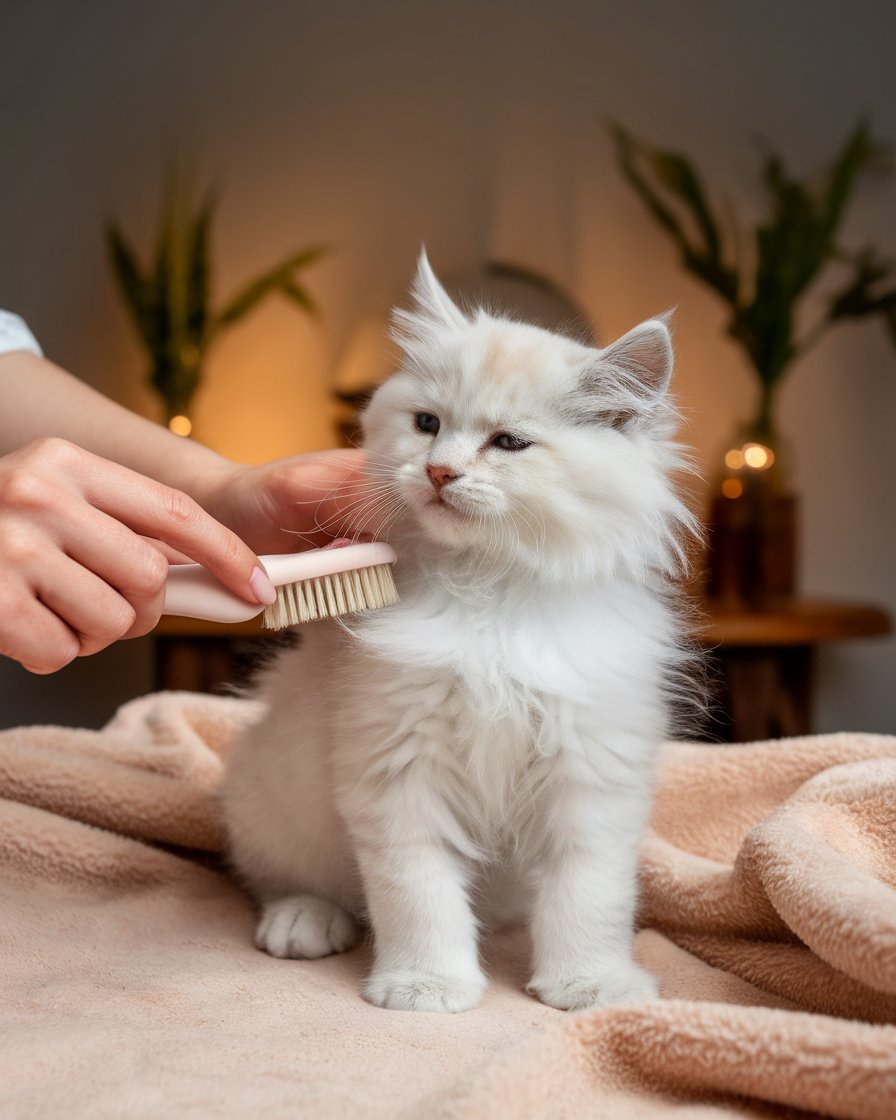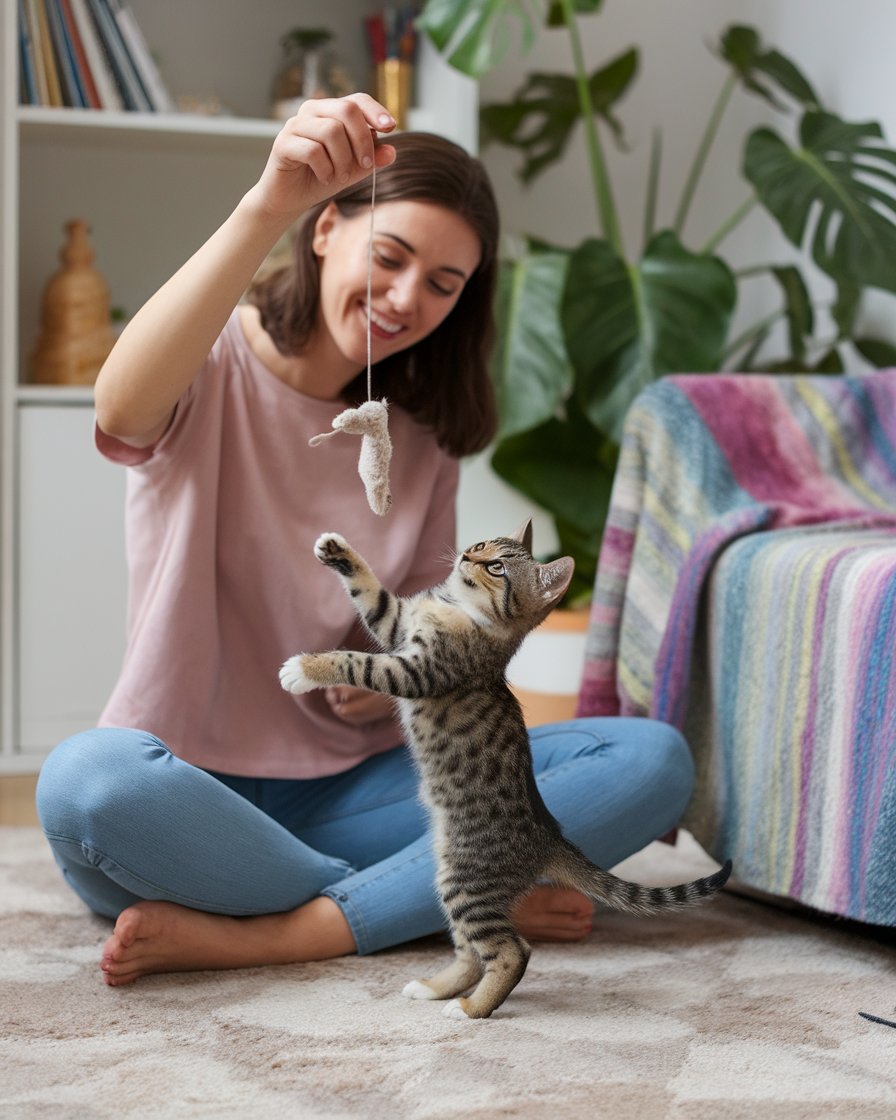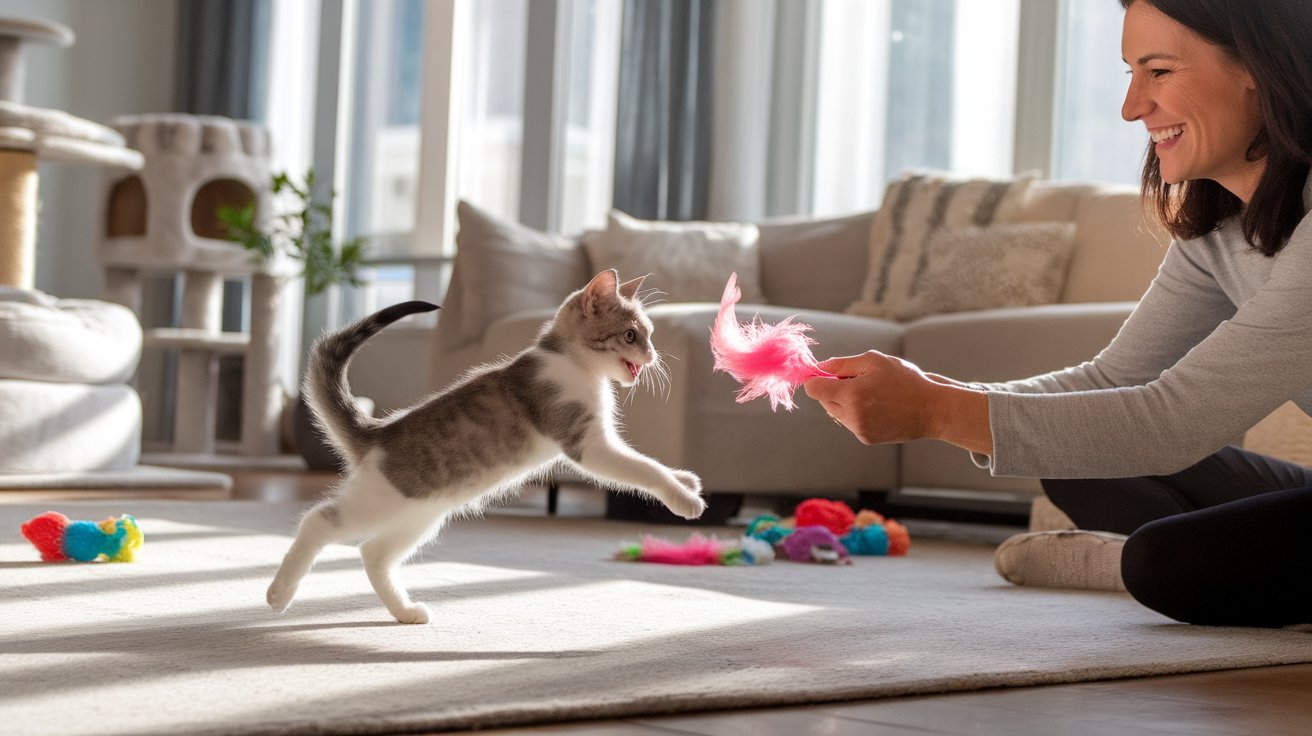Introduction
Raising a happy kitten can be one of the most rewarding experiences for any cat owner. As you introduce a new kitten into your home, it’s important to ensure that they feel safe and comfortable in their new environment. Creating a space where your kitten can climb and explore, such as setting up a cat tree, is essential. It’s also crucial to engage in regular play and provide plenty of cuddles to let your kitten know they are loved, which are good signs that your kitten knows they are part of the family.
Understanding the body language of a happy cat is key to fostering a lasting bond with your feline companion. Look for signs you have a happy cat such as purring, a relaxed posture, and a tail held high—these are indicators that your cat is a happy cat. In addition to physical setups like interactive toys and clean litter boxes, being responsive to your cat’s vocalizations, such as meows and purrs, helps you better meet their emotional and physical needs. This attentive care helps your kitten grow into a happy adult cat, ensuring they are happy and content.
Key Takeaways
- Providing a safe and comfortable environment for your new kitten helps them acclimate and feel part of the family, enhancing their sense of security and belonging.
- Understanding and responding to the body language and vocalizations of your kitten are crucial for building a strong and lasting bond.
- Regular grooming and litter box training are essential practices that contribute to the health and comfort of your kitten, preventing common issues like matting and accidents.
- Consistent playtime and affection reinforce your bond with your kitten, letting them know they are loved and valued.
- Veterinary care is vital in maintaining your kitten’s health, ensuring they grow into a happy and healthy adult cat through regular check-ups and preventive care.
- Recognizing and encouraging positive social behavior in your kitten promotes their well-being and integration into your family and social life.
Raising a Happy Kitten
Introducing a new kitten into your home can be an exciting yet challenging experience. It’s crucial to provide a safe and comfortable environment for your kitten to get acclimated. Setting up a cat tree for climbing and perching can help keep your kitten active and entertained. Remember to cuddle and play with your kitten regularly to strengthen your bond and let your cat know they are loved.
Key Tips for Raising a Happy and Healthy Kitten
Early Socialization and Handling: Introducing your kitten to various experiences early on is vital. Regular handling and petting can make them more comfortable with human contact, easing routine care activities like grooming and vet visits. Gradually socializing them with other pets can enhance their confidence and behavior.
Healthcare and Nutrition: Regular veterinary check-ups and vaccinations are essential for your kitten’s health. Providing a diet tailored to their developmental needs, which should include both wet and dry kitten-specific foods, supports their growth and health.
Safe Environment: Kitten-proofing your home by securing or removing small objects, toxic plants, and exposed cords is crucial to prevent accidents and injuries. Offering a safe, enclosed space with easy access to food, water, and a litter box helps them adjust to their new surroundings smoothly.
Training and Litter Box Practices: Introduce your kitten to the litter box early. Placing them in the box after meals or naps can help establish good habits. The litter box should be kept in a quiet, accessible location and maintained cleanly to encourage its use.
Interactive Play and Enrichment: Engage your kitten with toys that stimulate their natural hunting instincts, such as feather dancers or balls, and alternate their toys to keep them interested. Play sessions not only strengthen your bond but also provide necessary physical and mental stimulation.
By following these guidelines, you can help your kitten grow into a well-adjusted and joyful adult cat.
Introduction to a Happy Cat
Understanding the body language of a happy cat is key to fostering a strong relationship with your feline companion. Pay attention to signals such as purring, kneading with their paws, and relaxed ears, which are all signs that your cat is content. Additionally, providing enrichment activities like interactive toys and scratching posts can help keep your cat happy and mentally stimulated.
Body Language of a Happy Cat
Cats communicate through various vocalizations, including meows, purrs, and chirps. Each sound has a different meaning, and by learning to interpret your cat’s meows, you can better understand their needs and emotions. For example, a high-pitched meow may indicate excitement or a request for attention, while a deep purr often signifies contentment. By listening and responding to your cat’s vocal cues, you can strengthen your bond and ensure your cat is happy.
Kitten Care Grooming remains a top priority
Proper grooming is essential to maintain the health and well-being of your kitten. Regularly grooming your kitten helps prevent matting, removes loose fur, and reduces the risk of hairballs. Brushing your kitten’s coat gently not only keeps their fur looking sleek but also strengthens the bond between you and your feline companion.
Guidance on Grooming:
- Familiarization: Let your kitten explore the grooming tools to get comfortable before you start. This includes brushes, combs, and nail clippers.
- Handling: Be gentle and patient, especially when brushing or combing. Always brush in the direction of hair growth to avoid discomfort.
- Health Checks: Use grooming time to check for any unusual signs on your kitten’s skin, or parasites like fleas and ticks.
Grooming not only helps keep your kitten clean and mat-free but also provides an excellent opportunity to check for health issues and bond with your pet.
Grooming Your Kitten
Introduce grooming to your kitten from a young age to get them accustomed to the process. Use a gentle brush suitable for their fur type and start with short grooming sessions. This not only helps keep their coat in good condition but also allows you to check for any skin issues or parasites. Reward your kitten with cuddles or treats after each grooming session to create a positive association.
Proper Litter Box Training for Kittens
Litter box training is a crucial aspect of caring for your kitten. Choose a quiet and easily accessible location for the litter box and ensure it’s cleaned regularly. Kittens are naturally inclined to use a litter box, but accidents may happen during the learning process. Be patient and provide positive reinforcement when your kitten successfully uses the litter box to encourage good litter habits.
Keeping Your Kitten Happy and Healthy
Besides grooming and litter box training, ensuring your kitten’s overall well-being is key to their happiness. Regular veterinary check-ups, a balanced diet, and plenty of interactive playtime are essential for a happy and healthy kitten. Pay attention to your kitten’s body language and behaviors to understand their needs and provide a nurturing environment for them to thrive.
Building a Bond with Your Kitten
Creating a strong bond with your kitten is essential for a happy cat-owner relationship. Engaging in regular cuddle and playtime sessions not only provides physical and mental stimulation for your feline companion but also helps in strengthening your bond with them. By actively participating in play and affectionate moments, you are letting your cat know they are loved and cared for.
The Importance of Regular Vet Visits
Visiting a veterinarian on a regular basis is crucial for maintaining the health and happiness of your cat. Veterinarians play a key role in ensuring your cat’s well-being by providing necessary vaccinations, conducting health check-ups, and addressing any underlying medical issues. By prioritizing regular vet visits, you can prevent potential health problems and ensure your kitty is in the best possible condition.
Encouraging Positive Social Behavior in Cats
Promoting positive social behavior in cats is essential for their well-being and happiness. Cats are social animals and thrive on interaction with their human companions. Providing opportunities for socialization, such as interactive play sessions and gentle petting, can help in fostering a friendly and affectionate relationship with your cat. Encouraging positive social behavior creates a harmonious environment where your cat feels secure and content.
Understanding Your Cat’s Needs
Recognizing and fulfilling your cat’s needs is fundamental in ensuring they lead a happy and fulfilling life. By observing the signs of a happy cat, such as a relaxed posture, purring, and playful behavior, you can gauge your cat’s contentment levels and make necessary adjustments to their environment. Understanding your cat’s needs allows you to provide tailored care and create a nurturing space where your feline companion can thrive.
“Like tiny paw prints etched upon the soft sands of your heart, a kitten’s love gently imprints itself, forever altering the landscape of your emotions. “
Recognizing Signs of a Happy Cat
Differentiating between content and distress signals in cats is crucial for effective care. Signs such as a softly purring cat, relaxed body language, and engaging in play are indicators that your cat is happy and comfortable. By observing these signs, you can ensure that your cat’s needs are met, and they are leading a fulfilling life in your household.
Feline Behaviors: Purrs, Kneading, and Blinking Slowly
Understanding feline behaviors like purring, kneading, and slow blinking is key to deciphering your cat’s emotions and needs. Purrs indicate contentment, kneading signifies relaxation, and slow blinking is a sign of trust and affection. By acknowledging and responding to these behaviors, you can build a deeper connection with your cat and promote their happiness and well-being.
The Role of Regular Brushing to Maintain Your Cat’s Happiness
Incorporating regular brushing sessions into your cat care routine can contribute significantly to their overall happiness. Brushing not only helps in keeping your cat’s coat healthy and mat-free but also serves as a bonding activity between you and your feline friend. The tactile sensation of brushing can be soothing for cats and reinforces the bond between the two of you.
[lasso rel=”amazon-23″ id=”5413″]
Conclusion
In concluding the journey of raising a happy kitten, it’s clear that understanding and meeting your kitten’s needs creates a foundation for a joyous and fulfilling relationship. Establishing a safe and comfortable environment for your new kitten not only promotes their well-being but also deepens the bond they share with you as their cat parent. By paying attention to signs of contentment like purring and relaxed body language, you affirm that your kitten is growing into a happy and content adult cat.
Regular grooming, maintaining a clean litter box, and engaging in lots of attention and affection are essential for your kitten’s health and happiness. These actions, coupled with regular veterinary care, ensure that every cat, no matter the age or stage, receives the love and care they deserve. Ultimately, the steps you take from the moment you get your kitten will shape them into a well-adjusted, playful cat, prepared to enjoy a life of happiness with you.

